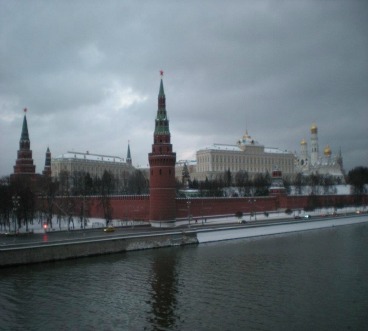Mr. Speaker, there is reason to fear for the fate of rule of law in Russia. I want to present one relevant example.
Mikhail Trepashkin, an attorney and former Federal Security Service, FSB, officer was arrested on October 24, 2003, a week before he was scheduled to represent in legal proceedings the relatives of one of the victims of a terrorist attack in Moscow. Mr. Trepashkin’s American client is Tatyana Morozova of Milwaukee, Wisconsin. In September 1999, Ms. Morozova’s mother was killed and her sister barely survived the bombing of an apartment house in Moscow. Officially, the crime was blamed on Chechen separatists, but Mr. Trepashkin was expected to present the findings of his investigation which suggested involvement of elements of the FSB in the 1999 apartment bombings in Moscow as well as an aborted attempted bombing in the city of Ryazan.
Mr. Trepashkin had been a consultant to the public commission set up by prominent human rights activist and former Duma Deputy Sergei Kovalev to investigate the 1999 bombings. The Kovalev commission asked many unpleasant questions but got precious few answers from the authorities. Meanwhile, in the course of his investigation Trepashkin discovered evidence that didn’t track with the official version of the bombing incidents. This included events in Ryazan, where a bomb in an apartment basement was discovered by local police and safely detonated hours before it was due to explode. The two suspects in that case were released after presenting FSB identification documents. The whole incident was later declared a “readiness exercise” by Russian authorities.
Several months later, the co-chairman of the Kovalev Commission, Duma Deputy Sergei Yushenkov, was assassinated in front of his home. Four persons were convicted of the murder. Another member of the Commission died of food poisoning in a hospital, another was severely beaten by thugs, and two members lost their seats in the Duma. The activities of the decimated commission came to an abrupt halt.
A week before the October 24, 2003 trial opened, the police just happened to pull Trepashkin over on the highway, and just happened to find a revolver in his car. Trepashkin claims the gun was planted. Three weeks later, he was put on trial and sentenced to 4 years labor camp by a closed court for allegedly divulging state secrets to a foreign journalist.
Mr. Speaker, I don’t know all the details of this case, but it looks very much like Mr. Trepashkin was prosecuted in order to prevent him from releasing potentially damaging information regarding the activities of the FSB. The U.S. State Department has commented diplomatically: “The arrest and trial of Mikhail Trepashkin raised concerns about the undue influence of the FSB and arbitrary use of the judicial system.”
Today Mr. Trepashkin is held in a Volokolamsk city jail in a 130-square foot, lice-infested cell, which he shares with six other prisoners. He suffers from asthma but reportedly has been denied health care or even medicine. These arduous conditions may be retaliation for Mr. Trepashkin’s filing a complaint to the European Court of Human Rights in Strasbourg.
It is difficult to believe that President Putin, given his KGB and FSB background, is unaware of the controversy surrounding the bombing investigations and the possibility that elements of the security services were involved. He must realize that corruption and personal vendettas within the FSB are dangerous commodities not only for the people of Russia, but for an entire civilized world that relies on the combined efforts of the intelligence community in the war against terrorism.
I urge President Putin to order a thorough and honest investigation of Mikhail Trepashkin’s jailing and full cooperation with the Kovalev Commission. While the jury is still out on the 1999 bombings, persecution of those who want to find out the truth does not add to Mr. Putin’s credibility among those in the West who so far have been willing to give him the benefit of the doubt.





